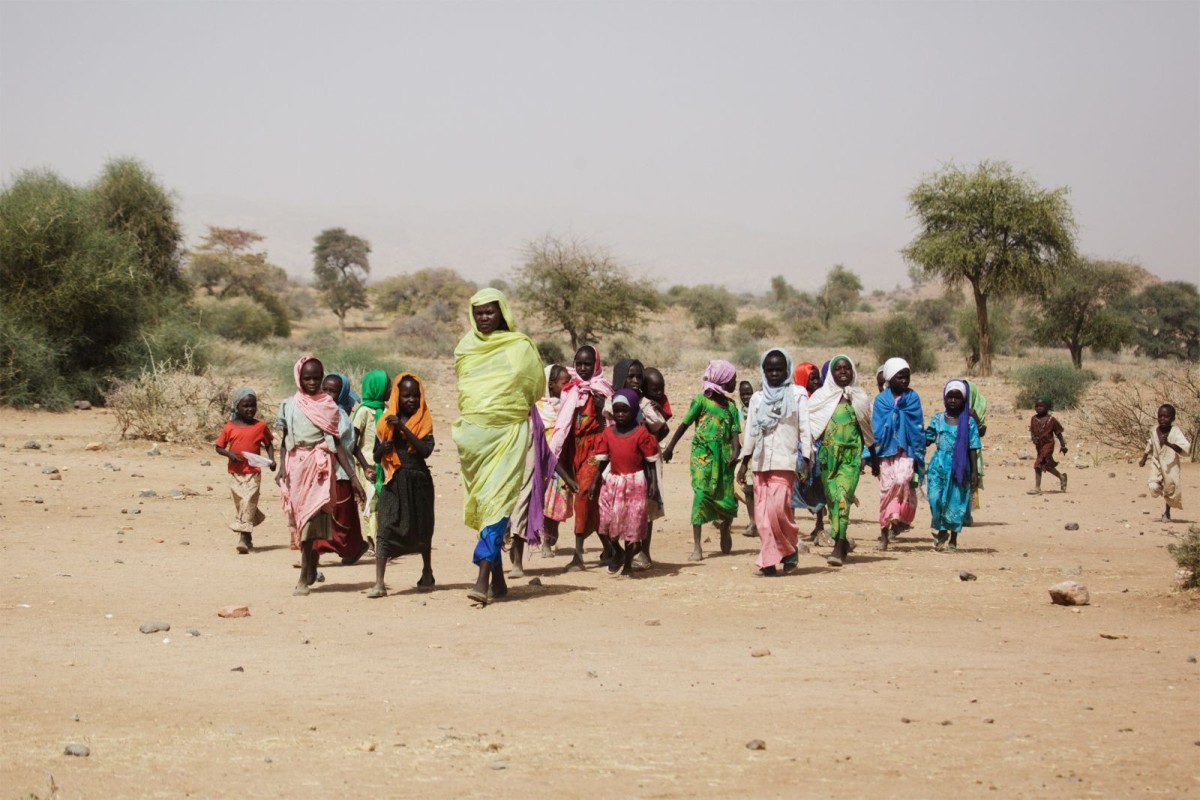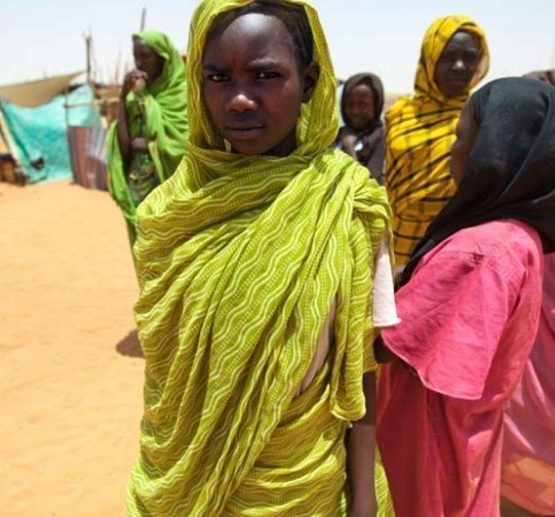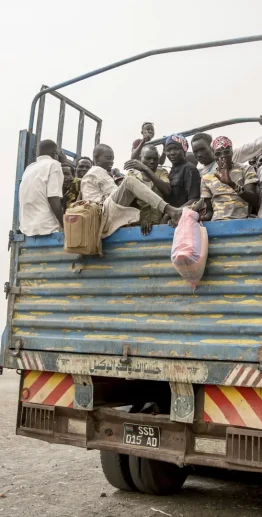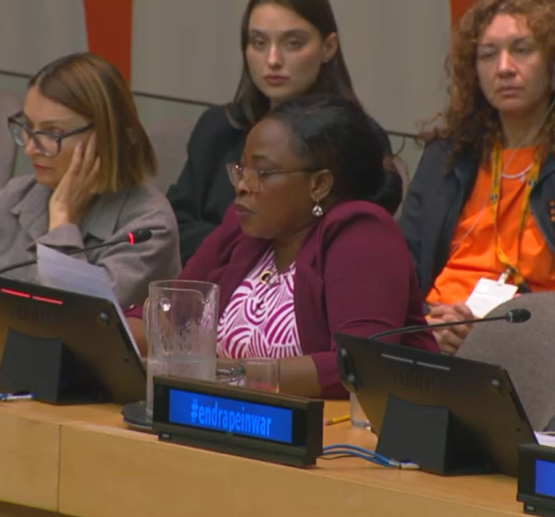Women and Genocide in the 21st Century:
The Case of Darfur
National Symposium
419 7th St. NWWashington, DC
Saturday, October 25th-Sunday, October 26th
Registration is now open!

Guests are welcome to register at the conference so bring friends and colleagues.
SCHEDULE OF EVENTS & SPEAKERS
Day One: Saturday, October 25
8:00am – 9:00am: Registration
9:00am – 10:00am: Introduction and Opening Remarks
Norrie Kurtz, Chair of the Board of Darfur Women Action Group
Clip from FEMME Documentary
10:00am – 11:00am: Genocide in the 21st Century
Niemat Ahmadi, Founder and President of Darfur Women Action Group
Gregory H. Stanton, Genocide Scholar and Chair of Genocide Watch
Marion Arnaud, Project Officer, Office on Genocide Prevention & the Responsibility to Protect
Tom Andrews, President and Chief Executive Officer of United to End Genocide
Moderated by Ndimyake Mwakalyelye, Broadcaster at Voice of America
11:00am – 11:10am: Coffee Break
11:15am – 11:30am: Violence Against Women in Darfur Video
11:30am – 12:30pm: Women’s Resilience in the face of Genocide and Mass Atrocities
Ambassador Mukantabana, Rwandan Ambassador to the US, Mexico, Brazil and Argentina
Ikklas Abdelmageed, Research Fellow, USIP’s Sudan and South Young Leaders Program
Jo-Marie Burt, Director, Latin American Studies & Associate Professor ofPolitics, George Mason University, Senior Fellow, Washington Office on Latin America
Myra Dahgaypaw, Burmese Human Rights Activist
Moderated by Donna Robinson, DWAG Volunteer and Attorney at Law
12:30pm – 1:00pm: Keynote Address
Introduction Norrie Kurtz, DWAG’s Chair of the Board
Eric Reeves, Professor at Smith College, Prominent Journalist and SudanExpert
1:00pm – 2:00pm: Lunch
2:00pm – 3:00pm: Remarks on Accountability for Genocide and Crimes Against Women
Fatou Bensouda, International Criminal Court Prosecutor
Stephen J. Rapp, Ambassador-at-Large for War Crimes Issues, Office of Global Criminal Justice
Moderated by Professor Greg Stanton , Research Professor in Genocide Studies and Prevention, School for Conflict Analysis and Resolution
3:00pm – 4:00pm: Strategies for Women’s Empowerment
Kimberly Barnes, Executive Director and Founder of Voices for Hope
Jeffrey Eide: Head of Education and Media Outreach Committee, Rape andAbuse Crisis Center
Hadley Rose, President of Genocide Watch
Moderated By; Bama Atherya , Senior Specialist, Labor and Employment Rights at USAID
4:00pm– 4:10pm: Coffee Break
4:15pm- Watchers of the Sky – Screening and Remarks by; Elizabeth Bohart – Executive Producer, Director of Outreach Strategy
Day Two: Sunday, October 26
8:30am – 9:00am: Registration
9:00am – 9:15am: Voices from Darfur Video
9:15am – 10:15am: Crisis in Sudan at Large (Roundtable with Sudanese from all Regions
Khalid Gerais, Human Rights Activist, Co-founder of Nubia Project
Ahmed H. Adam, Senior Advisor, Program on Peace-Building and Rights at theInstitute for, the Study of Human Rights, Columbia University
Omer Ismael, Special Adviser at Enough Project
Zainab Balendia, Nuba Mountains Human Rightsand Peace Activist
Co-Moderated by NiematAhmadi, Founder and President of Darfur Women Action Group and Daniel Sulivan, Director of Policy and Government Relations,
10:15am – 10:45am: Remarks by Kemi Onanuga, Founding President and Chief Executive of the Pan AfricanWomen Legislative Assembly (PAWLA); Ambassador-at-Large to the United Nations for Women Economic Empowerment, Leadership and Political Participation
10:45am – 11:00am: Coffee Break
11:00am – 12:00pm: Breakout Discussions
Working groups-Strategies for Sustainable Change in Sudan – Sudanese Diaspora Networking, Advocacy and Policy Reform – Activists
12:00pm – 1:00pm: Create a Unified Strategy for Sustainable Change in Sudan
1:00pm – 2:00pm: Lunch
2:00pm – 2:30pm: Remarks by El-Fadel Arbab, Darfur Genocide Survivor and Educator
2:30pm – 3:00pm: Presentation of Unified Strategy and Recommendations
3:00pm – 3:30pm: Indigenous Sudanese Music
Ameer Wahbi, Sakoja and Abdalla Bara
3: 30- 4:00pm Closing Remarks
Can’t make the conference? Consider donating instead: http://www.darfurwomenaction.org/donate
Follow conference tweets @DWAG6 #WomenAndGenocide






